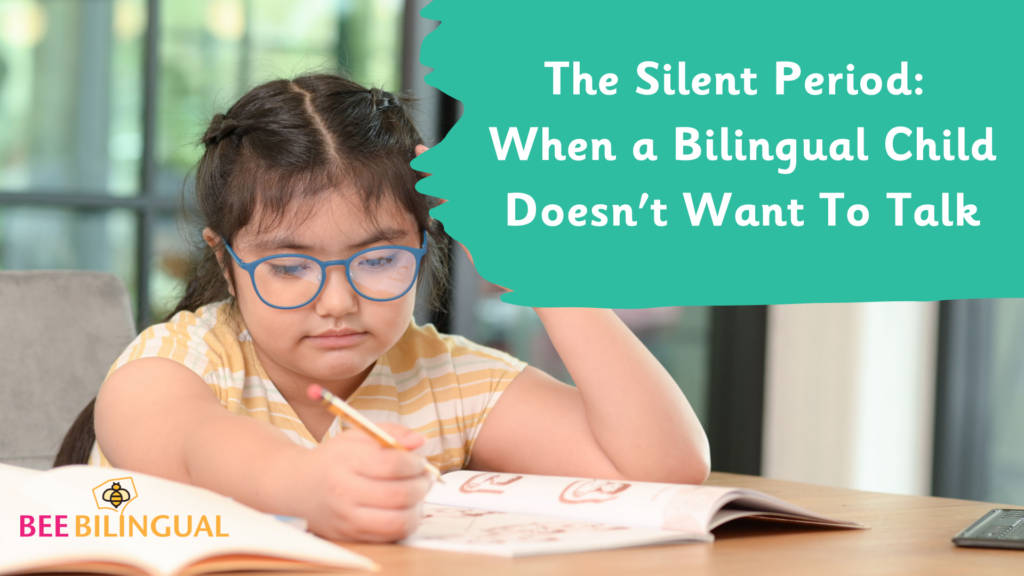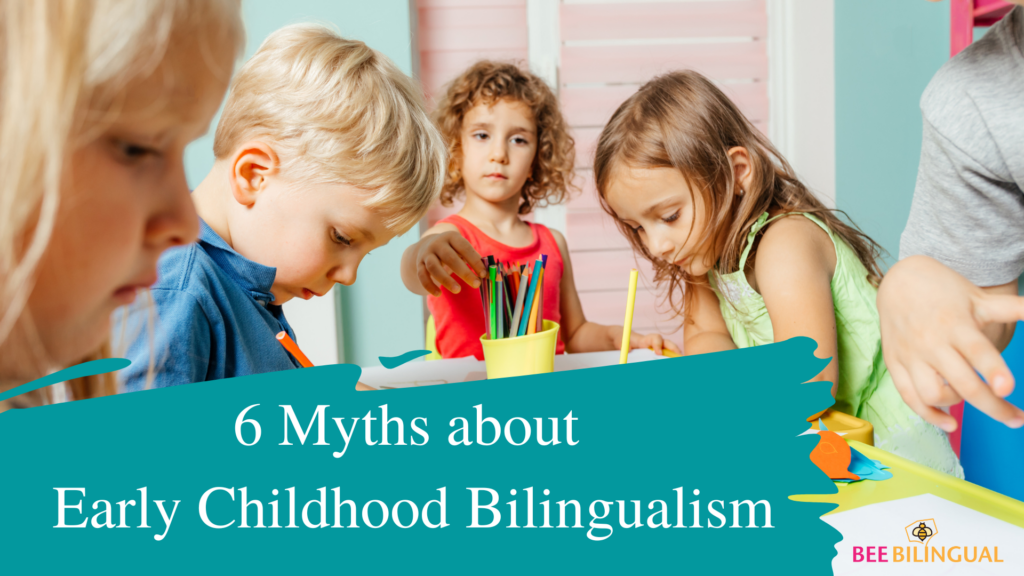Before we talk about a couple of tips on how to support your child during the silent period, we will take a closer look at what the silent period actually means.
What is the silent period / silent phase?
When a child stops speaking in their second language (or only says a few words), then this is referred to as the silent period. It is important to know that your child is still learning and absorbing the language, and that this period is absolutely normal. They are still active learners who have simply chosen not to speak. It can last anything, from a few days to a few months.
There is a lot of debate about the silent period, including why it happens and if it is actually part of the language learning process in children. Some children go through it, others don’t.
Well, what is certain is that it is a phenomenon that exists. I’ve experienced it myself with one of my very young German students.
As I have written in my previous blog posts, it simply isn’t true that children learn a second language without any problems. Of course, there are kids who might not struggle a lot, but, to be quite honest with you, that is rather rare.
Whether we, as adults, or a bilingual child, is learning a new language, we all go through different stages. In the beginning, we might find everything easy, but then, as we progress and the grammar gets more complicated or we are suddenly in a situation in which we are meant to talk, well, then we are suddenly lost for words… and that is completely normal. Often, there is a reason behind it; perhaps we feel anxious about speaking in a new language, or we have a lot going on in our lives and we simply can’t focus. Or, another valid reason is that we might be shy.
In a way, it’s the same for children. Most likely, there is a reason why a child suddenly stops talking. Perhaps it’s shyness or social anxiety, or perhaps they are bothered by something that is going on in their lives. Maybe they have changed schools, they are moving house, or there is something else going on. Sometimes it is very difficult to pinpoint the reasons for the silence.
Perhaps you have noticed that they are talking quietly to themselves. Maybe, by doing this, your little bilingual learner is simply building up some confidence.
Some kids don’t mind making mistakes; other children feel self-conscious about them (the same as most adults!).
It is important to rule out that there is not another reason, such as hearing problems, that could be the cause of the silent period. Especially if selective mutism extends into other areas of the child’s life, then it is important to seek medical advice.
What to do
- Be positive! I know it can be difficult, but encouragement is key. Pressure won’t help. If your child doesn’t want to talk, you shouldn’t force them but instead encourage them.
- By using open questions, you might be able to encourage them to give you longer answers.
- Help them with their answers
- Play games and do role-playing activities.
- You could use puppets or toys to encourage them to speak.
- Do activities that the bilingual child enjoys.
For more language learning activities, take a look at our Activities section and our Bilingualism Checklist.
Bear in mind that every language learning journey is unique. Every child learns at a different speed and has different language needs. The silent period can be a completely normal part of being bilingual. With encouragement and positivity, the silent period will pass; remember, children that go through this period are still actively learning!



